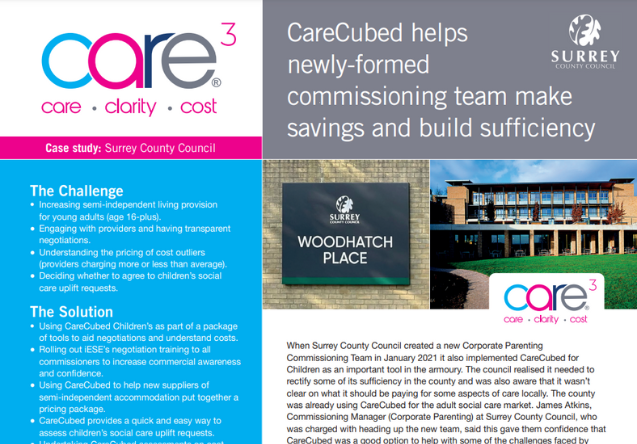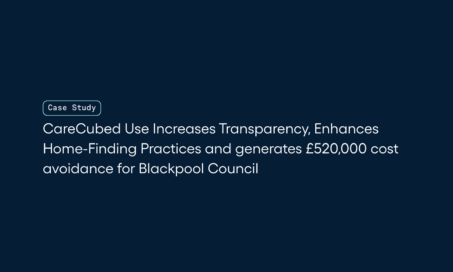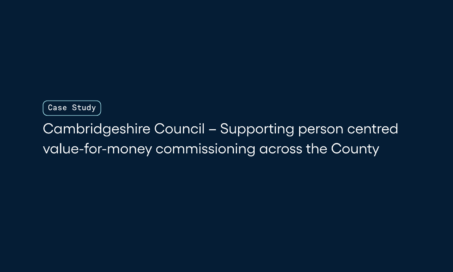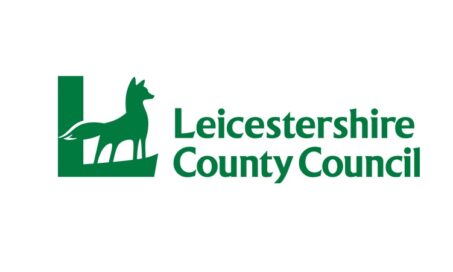
The Challenge
- Increasing semi-independent living provision for young adults (age 16-plus).
- Engaging with providers and having transparent negotiations.
- Understanding the pricing of cost outliers (providers charging more or less than average).
- Deciding whether to agree to children’s social care uplift requests.
The Solution
- Using CareCubed Children’s as part of a package of tools to aid negotiations and understand costs.
- Rolling out iESE’s negotiation training to all commissioners to increase commercial awareness and confidence.
- Using CareCubed to help new suppliers of semi-independent accommodation put together a pricing package.
- CareCubed provides a quick and easy way to assess children’s social care uplift requests.
- Undertaking CareCubed assessments on cost outliers to understand how costs are created and ensure fairness and transparency
Results
- Greater confidence that the council is paying a fair rate and helping deliver a sustainable and sufficient environment for providers and children.
- An increase in over-16s in supported accommodation being placed in county – up from 35 per cent to 65 per cent in one year.
- An increase in block bed commissioning from 229 beds up to 350, whilst saving £1.1m.
- £750K saved on market spot purchasing.
- Improved relationships with providers due to open, transparent and consistency of approach.
When Surrey County Council created a new Corporate Parenting Commissioning Team in January 2021 it also implemented CareCubed for Children as an important tool in the armoury. The council realised it needed to rectify some of its sufficiency in the county and was also aware that it wasn’t clear on what it should be paying for some aspects of care locally. The county was already using CareCubed for the adult social care market. James Atkins, Commissioning Manager (Corporate Parenting) at Surrey County Council, who was charged with heading up the new team, said this gave them confidence that CareCubed was a good option to help with some of the challenges faced by Children’s Services, and also provide opportunities around the transition process from childhood to adulthood.
“It is fair to say Surrey had a reputation of not engaging well with its providers and not having those open transparent conversations. We weren’t really certain around what we should be paying for certain aspects of care and what that looked like in terms of a regional, local market,” Atkins explained.
Surrey County Council has a looked-after children’s population of 1,050 with a budget of around £50m to £60m per annum. When the new commissioning team was established, the county had a shortfall of providers in the supported accommodation sector for young adults, with only 35 per cent of its looked-after age 16-plus children being placed in county. The first thing the authority used CareCubed for was to help new providers understand how to develop a costing model that would work for both parties.
“Some providers who were new to the sector were existing social workers who were clear how helpful it was to use CareCubed to pull together a costing model for them to use going forward. The transparent nature of CareCubed meant that we could work with providers to learn how their provision operated, capturing their costs, developing a costing model, and then using that as a template going forward. Working with providers to co-produce this has meant we can now use the templates as part our tender process for block contracts going forward. It has strengthened the relationship with some of our providers, maturing the relationship and changing the conversation, but it has also really pushed the sufficiency on as well. We are up to 65 per cent of young people being placed in county which is a big turnaround since last year,” Atkins explained.
The council makes it clear in its sufficiency documents that CareCubed is used to help cost provision.
The team then used CareCubed as part of a cost audit where they looked at some providers deemed to be cost-outliers – those charging above or below market rate. “Essentially what we do is we send the cost of care template provided by iESE to those providers and then quickly run it through CareCubed. This gives us a solid evidence base to have an open conversation with the provider and negotiate from that point where we want to see a change or difference, or simply need to understand their cost base” Atkins said.
Part of the iESE offer which Surrey found very beneficial was the two half-day negotiation training sessions it received, which staff found so helpful that the council has asked iESE to roll it out as part of its Children’s Service Training Academy. “Having training around the softer skills, alongside the software training was really useful and gave us instant results. The tools and tactics meant that we were equipped to ask the right questions, prepare for the conversation and get the results we had hoped for from the negotiation. The very first conversation I had uncovered some issues in terms of how the provider was costing provision – which was very helpful for both them and us. The training was so good that we decided to embed it in our training offer,” he added.
“The iESE negotiation training was one of the better trainings we have had as a team. It was so good we decided to embed it in our training offer for our Children’s Service Training Academy. I put it into practice with a provider and the tools and tactics straight away paid off as we were able to have a positive conversation as to how they were costing up aspects of their provision.”
James Atkins, Commissioning Manager (Corporate Parenting), Surrey County Council
The council is also using CareCubed for uplift requests. Providers are required to submit a cost of care template which is then run through CareCubed. “It is how we decide whether to agree to an uplift or not – it gives us an evidenced-based way to do that and quickly make a decision. This has led to considerable amounts of cost avoidance where these requests would have previously been accepted as there was no evidence base or benchmark to compare against,” Atkins explains.
The tool has been well-received by all providers and the team have not experienced any pushback. Atkins highlights that conversations about money have the potential to be difficult but says that using CareCubed is far easier than going into a conversation blind. “The feedback from all providers is that it has been an extremely helpful tool which has built trust and improved relationships. We have shared the outputs from CareCubed with providers, and it means we can be on the front foot and say with confidence, ‘here are the workings, based on lots of robust data and you can see exactly how this is made up’. That evolution of the conversation has worked really well,” he adds. “You can’t just go into a case and say ‘I have CareCubed it, get on with it’, it is about relationship building and conversations around sufficiency. One thing I always caveat our conversations with is that if we are underpaying then that is an equally important point and a conversation we can have too – it is not just about clawing back money.”
Atkins explains that one provider had massively under costed their provision. “I CareCubed it and they were paying around half of what CareCubed said we should be paying. I said to them ‘At the end of the day it is in our interest to see you as a sustainable provider, what we don’t want to do is have a race to the bottom and encourage you to price so low that you can’t afford to give the high quality support for our young people that we want to see’. It is not just about saving money, it is about sustainability and sufficiency too. CareCubed will give us a very good steer either way.”
“CareCubed has made an immediate impact and delivered significant benefits, exceeding our expectations we had for the first 12 months. It is now embedded into our processes and playing a critical role both in day-to-day commissioning and also as a strategic tool for us to work closely with providers to shape our market and ensure it is sustainable. Not only is it helping the council achieve our goals, but it has also been very well received by our providers too, who value the open and transparent approach to talking about price.”
Chris Tisdall,
Commissioning
Service Manager
(Corporate Parenting)
While it is not all about spend reduction and lots of benefits have been realised, CareCubed has delivered some impressive cost savings for Surrey in its first year. The authority recently recommissioned its block contracts for beds in supported accommodation, increasing the number from 229 to 350, but at the same time saving up to around 1m through using CareCubed. This was achieved through renegotiation of costs and utilising CareCubed to commission block beds (avoiding costs compared to spot purchasing on the open market). “Every pricing submission that providers submitted was CareCubed and if it fell above the range then they essentially received a lower score on that pricing submission. At the same time, improvement outcomes in CareCubed show the positive benefits and outcomes delivered by providers which allow us to measure quality of services too,” Atkins said.
The county has recognized that the benefits of CareCubed could go beyond children’s and adult social care and is now in discussions with iESE about using CareCubed for SEND placements too. “The way the non-maintained market is for independent schools for SEND placements, it is very hard to get a breakdown of costs, it is the same challenge that social care has had and it would be useful to replicate CareCubed’s use for future contracts, price negotiations and the inflationary uplift panel. iESE have kept in touch since we started to use CareCubed to firstly ensure we achieve our goals, but also to take our feedback so the system continues to evolve and develop to be even more useful,” he adds.











